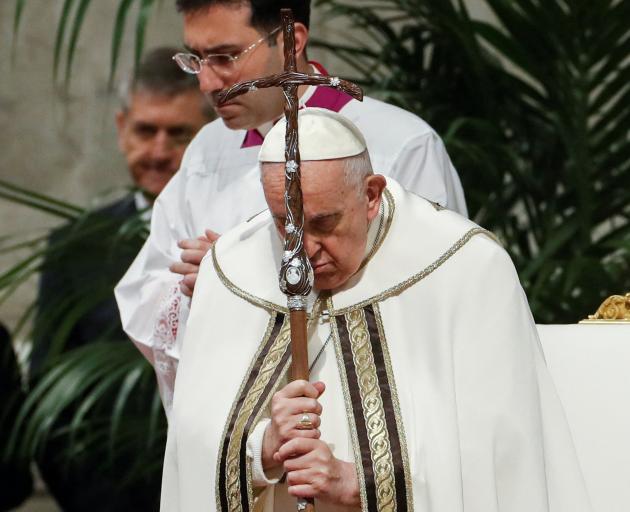
Classically Easter has been about hope, but it tended to be trumpeted as a solipsistic one. If I believe, I’ll be saved.
That never cut it for me. As a young person reading Camus and Sartre and struggling with Auschwitz, I thought that if atonement were required for sin then the God who had made a world crawling with horrors was in the doghouse, not me. So Easter’s redemption narratives left me cold.
Today, though, I see Easter quite differently, as a defiant response to what Immanuel Kant dubbed radical evil.
In the 1960s, Vatican II swept aside an otherworldly Catholicism that had happily gone to bed with Hitler. My closest colleague as a young theologian in Edinburgh was Andy Ross, son of a miner, recently expelled from Banda’s Malawi. He introduced me to the struggles of Mandela and the ANC freedom-fighters, "terrorists" to Thatcher and the UK establishment.
We watched Martin Luther King and the Jesuit martyrs in South America pay the ultimate price for their battle against injustice None of this directly related to Easter, but martyrdom and resurrection began to appear in a new light
I’m not arguing though that we should read Easter in reductive political terms. The issues are infinitely greater.
Sociologists talk of the hollowing out of meaning and hope among our younger generation. Post-modern relativism plus market economics leave them decidedly short on inspiration.
One problem is that we’ve junked the classical and Hebraic heritage so crucial for our forbears: the Greek tragedies, the plangent melodies and soul-searching of the metrical Psalms, the exalted vision of a new humanity in Isaiah, Jeremiah, and Amos, not to mention their rasping critique of injustice.
Scottish football commentators describe a robust centre-half as "stuffy". Maybe we need that sort of rugged back-bone to challenge the insouciance which stands blandly aside as the Putins and Netanyahus tear civilisation to shreds.
And while we rightly rage as our forests and oceans are trashed by government policies world-wide, what do we have in our locker to unmask such despair as self-indulgence, unleash the grunt to forge a new way forward?
Again and again down the ages reformers have cut a swathe through both traditional pieties and a convenient secularism and re-engaged with the elemental realities of this Jew from Nazareth.
They have remembered John the Baptist ushering him in, crying into the wilderness of our hearts (Thomas Müntzer). Recalled the ancestral Judaic tradition Jesus drew on. Pondered his improbable choice of a motley crew of semi-literate women and men as his core followers.
We read that he was constantly on the move, healing the marginalised, mixing with the un-mixables, hinting in riddles and parables at a kingdom not of this world. He was into people, into lilies and sparrows, into prayer.
His discourse was a language-event which melded word and action: "One good word is food for a thousand" (David Whyte).
Our spare records portray him as being feted and hated, alienating the religious, disrupting the pax Romana, urging the love of enemies, setting his face implacably towards Jerusalem.

His crucifixion is so laden with 20 centuries of interpretation that we probably cannot see it for what it was. The Orthodox icons of the sorrowing Mother of God and Grünewald’s Isenheimer Altar may edge us closer to its menace and dynamics.
Who can doubt, though, that the way chosen by Jesus led to a confrontation with radical evil?
And who can doubt that as we celebrate the resurrection hope of his bereft followers, that it menaces any capitulation to evil in the wilderness of our own hearts.
A grave dives down
deeper
than those who dig it.
Awesome,
this head start of death.
Deepest of all, though,
the grave
that buried death.
Awesome,
its head start
to abundant life.
(Kurt Marti)
- The Rev Dr Peter Matheson is Emeritus Professor, Knox Theological College, Dunedin.












